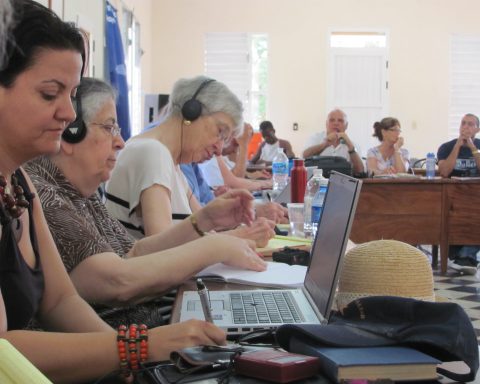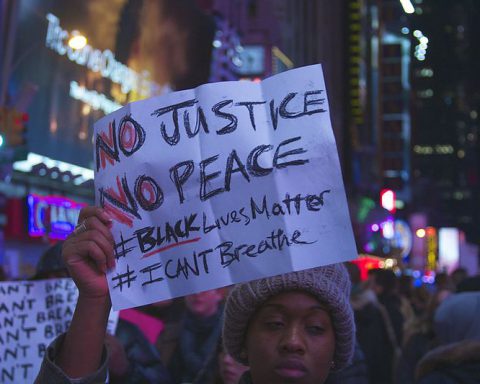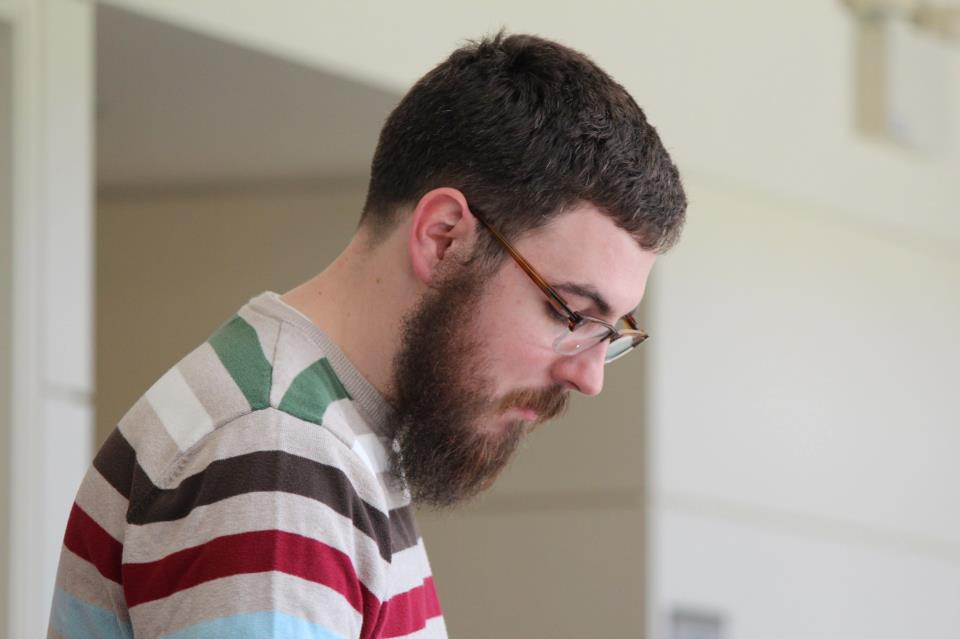“The task of prophetic ministry is to nurture, nourish, and evoke a consciousness and perception alternative to the consciousness and perception of the dominant culture around us.” – Walter Brueggemann, The Prophetic Imagination
By Jeremy John View and print as PDF.
View and print as PDF.

I do not know how to be a pastor. I’m an organizer. I organize the church for grassroots democracy, and sometimes I do pastor-like things, but I am a layperson.
You will be starting your pastoral careers in the midst of a recession. But this is more than a simple recession. It is an economic apocalypse: apocalypse in the sense of an “unveiling.” A full nine-tenths of the economy is affected by derivatives: money not linked to real goods and services.
What was just revealed, in the economic collapse of 2008, is that this money is not actually real. It can pop like a bubble, full of air.
There are many things that are likewise not real into which we’ve stored away value. Twitter and Facebook relationships are not real because they do not result in communities of mutual aid and deep commitments. Oil profits are not real because they are unsustainable. American democracy is not real because politicians first take care of those who fund their campaigns.
All of these repositories of value are set to explode as we realize their bankruptcy. We walk a minefield of false values. And it is not necessary for you personally to tread on a mine. Your neighbor may do so, and your child will lose a leg.
But the God who is love is real, and our neighbors are real. By starting from our faith, we can walk the minefield.
By contrast, our world believes first and foremost that money is real. All value is grounded in this: the corporation must profit, the economy must grow. The secular society’s totalizing value framework is money, while at the same time it claims that no totalizing narrative exists, that all values are relative.
Jesus began life in a holistic agrarian community but witnessed early globalization and the oppression of the Jewish people by the Roman Empire, and so he understood the forces behind economic growth, and what those forces do to love and relationships. He talked about Mammon, which can be translated as wealth or riches and can mean profit or plenty. He teaches, “No one can serve two masters; for a slave will either hate the one and love the other, or be devoted to the one and despise the other. You cannot serve God and Mammon” (Matt. 6:24). The Pauline epistle warns us, “For the love of money is a root of all kinds of evil” (Tim. 6:10).
The occupy movement, too, understands this. It is a process of collective remembering, where we bring all the pieces together and identify what has been stolen from us through the monetization of all things. It is a deep cry from the depths of our collective unconscious that speaks to the now without worrying about orthodoxy or spirituality or growth.
Through the occupy movement, as we lived outside together and governed ourselves, we saw the depth of human and societal brokenness, but we also learned the power and beauty of real, democratic community. Many of us are hungry for more.
The church is likewise hungry to provide. Ekklesia, the New Testament word we translate into our limp modern speech as “church”, is actually a reference to the Athenian popular democratic assembly, and comes from the roots “to call” and “assembly”. It is a popular assembly called out of the whole, like the occupations throughout the country. It is a term embedded in the historical tension between aspiration and reality: the Greek democracy excluded women and anyone not qualifying as a citizen. While Paul’s vision of unity in Christ may have abolished such distinctions (“There is no longer Jew or Greek, there is no longer slave or free, there is no longer male and female; for all of you are one in Christ Jesus” – Gal. 3:28), in our current age, as in others, parts of the church have forsaken God for money and power, and the occupy movement itself has not learned the true depth of commitment it takes to become one in a single community. And yet I believe that the faith of Jesus Christ lived out in history requires us to strive for this ekklesia, which, by its very existence, is a rebellion against the hierarchies that define the world of power, class, and money.
But folks under thirty often do not see ekklesia in church anymore. They are deluged with too much information. Your sermon doesn’t matter to them because it is simply more information. In fact, it is a conversation in which they generally cannot participate, unlike their conversations online, and so it looks like a simple authoritarian monologue to them. They don’t want words. They want to see community in action. They want to participate in the process and have a voice at the table.
In a world full of words, we learn spirituality by doing the thing we want to learn. Sunday is not enough. If we want to inspire people to give to community, we must provide space for it. You, as a pastor, must provide a space for people to come together and collectively discern a church vision and mission. It’s not in telling, but in doing that spiritual formation happens. Your job is to become irrelevant. You have to step out of the way and teach the community to guide itself.
We have to be the world we wish to see. We have to show it is possible to live sustainably by making small sacrifices in pursuit of good stewardship.
The danger here is focusing on the end result. When we worship money, we worship the commodifiable output of community processes. On the one hand, the church must speak the lingua franca of outcomes and prove its use by engaging in missional collective activities like fixing cars and bikes for the community, job and skills sharing, engaging in civic action for justice, or simply taking care of one another in substantive ways. But, on the other hand, we must show how we build relationships rooted in love and trust through the process itself. The process must be transformative. We know that it’s not the material output, but the community formed through the process itself, that is important.
When we look for this, we find the church weak, either nurturing personal spirituality without a prophetic critique (conservative), or focused on prophetic action without nurturing our spirits (liberal). The church is Solomon’s baby, split in two.
. We have to show the world that the Gospel is personally and economically transformative, that we know how to break the bonds of money and build powerful communities of love that inspire people to invest their whole selves in collective projects that nurture the body, spirit, heart, and mind.
When we do not allow the baby to be split in two, we avoid the false dichotomy that kills the church.
And if we find our societal institutions corrupt, then the answer is simple. Do it ourselves.
Amen.
Want to get involved? Jeremy John coordinates the newly founded Crabgrass Christians Initiative, which organizes and provides resources to faith communities gathered for reflection and grassroots action. If you want a workshop on spirit-led grassroots democracy, collective visioning, the occupy movement, or any other sort of collaboration, email him at [email protected]!
___________________
Sometime in high school, Jeremy accidentally ate the red pill instead of the more harmless blue one, and has been an activist ever since.
In 2003 Jeremy spent six months in prison for civil disobedience while working to close the School of the Americas, converting to Christianity while imprisoned. He currently coordinates the Crabgrass Christians Initiative at the Quixote Center, which supports small group spirituality rooted in transformative encounters with alternative economies, cooperative decision-making (grassroots democracy), and missional engagement with world. He works closely with the Occupy movement.
Jeremy is a totally untrained and unqualified theologian working to build a praxis-informed Christianity that can disrupt our money-driven society with a Christ-formed “economy” of love that trickles up from the base. You can read more at The Occupy Church.
Jeremy contributes to the Good Men Project, Geez, Sojourners, the Huffington Post, and Red Letter Christians, blogging here. Want him to help your church or community discover a ministry that transforms both your community and your heart? Contact him! He tweets @glassdimlyfaith.






Unbound Social